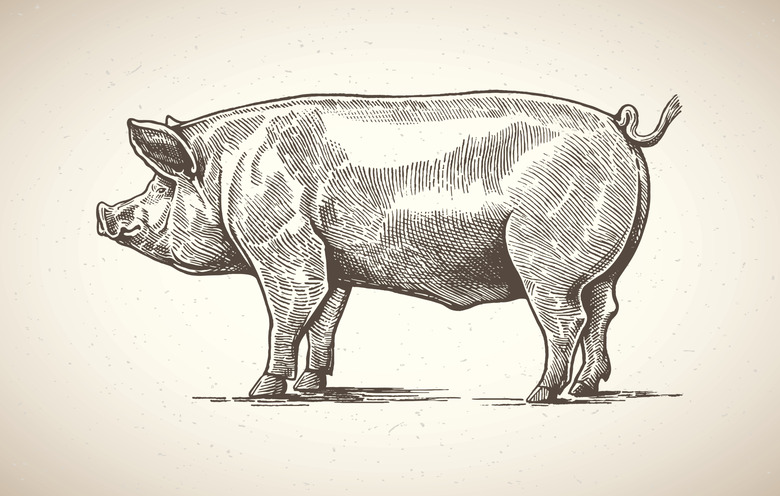Lamb On Pig: A Famous Nineteenth-Century Writer Praises Roast Pork
The English writer Charles Lamb (1775–1834), a contemporary and friend of Wordsworth and Coleridge, was born today, February 10. (When Coleridge once referred to him as "gentle-hearted," Lamb wrote back "Please to blot out gentle hearted, and substitute drunken dog, ragged head, seld[om]-shave, odd-ey'd, stuttering, or any other epithet which truly and properly belongs to the Gentleman in question.") Lamb is best remembered for The Essays of Elia and Last Essays of Elia (Elia was his nom de plume), two collections of delightful short pieces, originally published in The London Magazine, on topics ranging from "Witches and Other Night-Fears" to "Barrenness of the Imaginative Faculty in the Productions of Modern Art." Lamb was also an enthusiastic eater and drinker — he once cracked that diluting brandy with water ruined two good things — and one of the essays in his first Elia volume was a nearly-3,000-word paean to pork called "Dissertation on Roast Pig." This is an excerpt:
Of all the delicacies in the whole mundus edibilis, I will maintain [pig] to be the most delicate.... I speak not of your grown porkers...but a young and tender suckling — under a moon old — guiltless as yet of the sty....
He must be roasted. I am not ignorant that our ancestors ate them seethed, or boiled — but what a sacrifice of the exterior tegument!
There is no flavour comparable, I will contend, to that of the crisp, tawny, well-watched, not over-roasted, crackling, as it is well called — the very teeth are invited to their share of the pleasure at this banquet in overcoming the coy, brittle resistance -— with the adhesive oleaginous — O call it not fat — but an indefinable sweetness growing up to it -— the tender blossoming of fat — fat cropped in the bud — taken in the shoot -— in the first innocence — the cream and quintessence of the child-pig's yet pure food — the lean, no lean, but a kind of animal manna -— or, rather, fat and lean (if it must be so) so blended and running into each other, that both together make but one ambrosian result, or common substance.
Pig — let me speak his praise -— Is no less provocative of the appetite, than he is satisfactory to the criticalness of the palate. The strong man may batten on him, and the weakling refuseth not his mild juices.
Hares, pheasants, partridges, snipes, barn-door chicken (those "tame villatic fowl"), capons, plovers, brawn, barrels of oysters, I dispense as freely as I receive them. I love to taste them, as it were, upon the tongue of my friend. But a stop must be put somewhere.... I make my stand upon pig.
